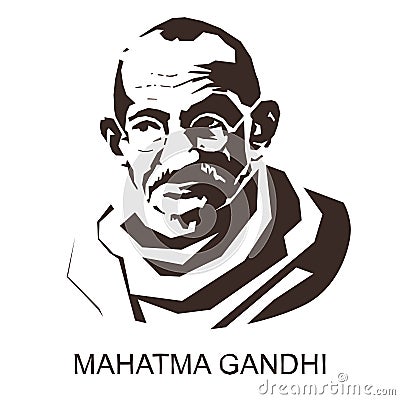Burlington questions:
1. What kind of student was Gandhi when he was young?
A bad student
2. Why were Gandhi's school friends a bad influence on him?
For exemple, he started to smoke, and stole money
3. How was Ghandi different from most Indian husbands?
Ba couldn't read or write so I helped her to learn
4. What was Ghandi's father's reaction to his son's letter?
He said nothing and tore up the letter
5. How did Gandhi change when he arrived in England?
I tried to adapt to the new life
6. Why did Gandhi write articles for a magazine in England?
He wanted to improve his English
7. Why were other Indian lawyers more successful than Gandhi?
because they knew the Indian law in depth
8. Why was it hard for Gandhi to be lawyer?
because he was so quiet and shy that we couldn´t speak in public.
9. Why did Gandhi go to South Africa?
A Moslem buisnesmen from Prorbender offered me a job.
10. Why was Gandhi asked to leave the court in Durbam?
He refused to take off his turban
11. What happened to Gandhi at Maritzburg station?
We was expelled from the train because of his race
12. What did Gandhi learn from his visit to the hotel in Pretoria?
Not everybody was is prejudiced; some whites feel uncomfortable about the situation.
13. What was Gandhi's advice to his people?
If you want better lives, you must be first be better. You must tell the truth in business. You must forget all your religious division and become one group. And you must learn English. That´s how Indians can get respect.
14.What did Gandhi learn from his fight with Ba?
I teach myself to be calm and behave well with everybody, especially with my wife.
15. What did Gandhi read about in the newspaper before he left?
A new was passed, Indians will not be able to vote for the government any more. It´s the end of any opportunities for Indians in South Africa.
16. Why did Gandhi start the Natal Indian Congress?
He decided
to start an organization to help the Indians and many people joined it.
17. What is the "Passive Resistance"?
It was a non-violent way to fight. We didn´t fight with our hands or with guns.
18. How did Gandhi's ideas about clothes change?
He wore a long white cotton shirt, white cotton trousers and sandals every day. Many people in the ashram began to dress in traditional Indian clothes too. They made the clothes ourselves - even the material.
19. Why did Gandhi feel the Indians weren't ready for non-violent resistance?
because we must fight against their anger and we mustn´t provoke it.
20. What made Gandhi finally decide to end British rule in India?
The General wasn´t punished after 400 Indians were killed and 1,200 were injured.
21. How did untouchables get their name?
They were called that because nobody was permitted to go near them or touch them. These poor people could not have any relations with the rest of Indian society and they were forced to do the worst jobs.
22. According to the British, it was illegal to take salt directly from the sea.Why?
They had to pay a tax
23. Why did Gandhi travel to India?
He attended a special conference to discuss home rule but nothing was agreed upon there.
24. Why did the British children give Gandhi gifts?
because it was his birthday on 2nd October. He was so pleased to take them home in India.
25. What did Gandhi do when he was in prison?
He fasted to demostrate against the treatment of the untouchables by many Hindus in India. Excluding them from society was one of the worst social injustices.
26. How did Gandhi try to help the villagers change their lives?
He organised classes to teach the villagers to make things with their hands. This way, they could sell the products and get money.
27. Why did the congress Party vote for the "Quit-India" resolution?
To make the British leave India immediately and let them govern the country
28. Why was there violence in India after the British left?
India was divided between two countries, Pakistan and India, the Moslem began to move from their homes into the areas of their country and the Hindus in Pakistan moved to India. A terrible fighting began between them. Hundreds of thousands of people were killed and millions were forced to leave their homes with nowhere to go.
29. When did Gandhi finally agree to end his fast?
A peace agreement was signed in front of Gandhi between the representatives of both communities.
30. A young man threw a bomb at Gandhi. How did Gandhi feel about this incident?
The police shouldn´t arrest him, they should teach him to think in the right way.
31. Who were Gandhi's assistants in his old age?
Ava and Manu, his nieces.
32. How did Gandhi die?
A man moved forward as if he wanted to greet Gandhi, Manu tried to stop him and hold him back. He held an automatic pistol and fired 3 shots.
33. What was prime minister Nehru's message to the Indian people after Gandhi's death?
The light has gone out of our lives and there is darkness everywhere. The light is the light of living truth, it led us to freedom.
34. Why were ordinary people all over the world so sad about Gandhi's death?
Gandhi´s life inspired the troubled world to save itself by following his noble example.
It was a personal loss, he was regarded as a good man.
35. Who, apart from the Indians, adopted Gandhi's beliefs?
Martin Luther King. The UN
36. Why was Gandhi's philosophy so hard to follow?
because it demands great courage to fight injustice without guns, to suffer but not hit back, to die but not to kill.
IG: @jairo_palacio13 @geermaan4. @MohaaRM
Answers by 4ESO students.
Copyright Burlington Books





